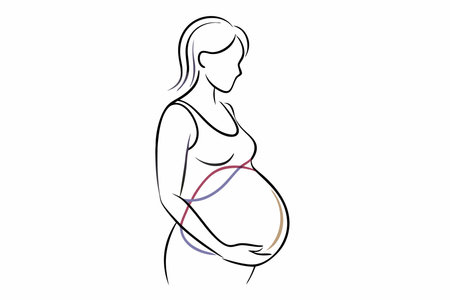Introduction to the UK Vaccination Schedule
The United Kingdom has a comprehensive childhood vaccination programme designed and delivered by the NHS, which plays a pivotal role in safeguarding both individual children and the wider community. This schedule is grounded in robust scientific evidence and is regularly reviewed by experts to reflect the latest research and public health needs. The vaccines included are carefully selected to protect against serious illnesses that were once common but are now rare due to effective immunisation efforts. By following the UK vaccination schedule, parents can ensure their child receives timely protection at critical stages of development. The programme is also tailored specifically for the population in the UK, taking into account local disease patterns, healthcare infrastructure, and cultural considerations. Below is an overview of the main features of the NHS childhood vaccination programme:
Key Feature |
Description |
|---|---|
Evidence-Based Practice |
All vaccines are recommended based on rigorous scientific research and monitored for safety and effectiveness. |
Universal Access |
Vaccinations are provided free of charge through the NHS to all eligible children in the UK. |
Tailored Scheduling |
The timing and selection of vaccines are adapted for UK-specific disease risks and local health needs. |
Public Health Impact |
The programme not only protects vaccinated individuals but also contributes to community immunity, reducing outbreaks. |
This introductory overview highlights how the UK’s vaccination schedule is strategically developed to maximise benefits for children and promote overall public health across communities.
Key Vaccines and When They Are Given
The UK vaccination schedule is carefully designed to provide timely protection against serious infectious diseases, safeguarding both individual children and the wider community. Below is a summary of the essential vaccines included in the NHS immunisation programme, the recommended ages for administration, and the illnesses they help prevent.
| Vaccine | Age Administered | Diseases Prevented |
|---|---|---|
| 6-in-1 Vaccine (DTaP/IPV/Hib/HepB) | 8, 12, and 16 weeks | Diphtheria, Tetanus, Whooping Cough, Polio, Haemophilus influenzae type b, Hepatitis B |
| Pneumococcal (PCV) | 12 weeks, 1 year | Pneumococcal disease (pneumonia, meningitis, sepsis) |
| Rotavirus Oral Vaccine | 8 and 12 weeks | Severe diarrhoea caused by rotavirus infection |
| MenB Vaccine | 8 weeks, 16 weeks, 1 year | Meningitis and septicaemia caused by meningococcal group B bacteria |
| Hib/MenC Booster | 1 year | Haemophilus influenzae type b, Meningococcal group C disease |
| MMR Vaccine (Measles, Mumps, Rubella) | 1 year, 3 years 4 months (pre-school booster) | Measles, Mumps, Rubella (German measles) |
| Children’s Flu Vaccine (Nasal Spray) | Annually from age 2 to school Year 11 | Seasonal influenza (flu) |
| HPV Vaccine (Human Papillomavirus) | Ages 12–13 years (school-based programme) | Cervical cancer and other HPV-related cancers and conditions |
| Teenage Boosters (Td/IPV and MenACWY) | Ages 14 years (school Year 9) | Tetanus, Diphtheria, Polio; Meningitis caused by groups A, C, W and Y bacteria |
This structured schedule ensures children receive optimal immunity at the most vulnerable stages of development. By following the recommended timings for each vaccine dose, parents not only protect their child but also contribute to reducing outbreaks and maintaining herd immunity within the UK community.

3. Individual Benefits: Protecting Your Child’s Health
The UK vaccination schedule is designed to offer your child the highest level of protection from a wide range of potentially serious diseases. Immunisations are carefully timed to coincide with periods when children are most vulnerable, ensuring they receive essential defence early in life. Vaccines work by teaching the immune system to recognise and fight off specific infections without causing the illness itself.
How Vaccines Safeguard Children
Vaccines protect against illnesses such as measles, mumps, rubella, diphtheria, polio, and whooping cough—diseases that once caused significant childhood illness, disability, or even death in the UK. By building up immunity before exposure occurs, vaccines drastically reduce the risk of these illnesses and their complications.
Benefits for Healthy Growth and Development
Protecting children from preventable diseases helps ensure uninterrupted growth and development. Illnesses like measles or meningitis can lead to severe complications such as pneumonia, brain damage, or hearing loss, which can impact a childs physical and cognitive development. By preventing these outcomes, vaccines allow children to attend nursery, school, and social activities safely, supporting both learning and emotional wellbeing.
Overview: Key Childhood Vaccinations and Their Benefits
| Vaccine | Protection Against | Key Benefits for Children |
|---|---|---|
| MMR (Measles, Mumps, Rubella) | Measles, Mumps, Rubella | Prevents severe infections that can cause deafness, encephalitis, and long-term disability |
| DTaP/IPV/Hib/HepB (6-in-1 vaccine) | Diphtheria, Tetanus, Whooping Cough, Polio, Hib disease, Hepatitis B | Reduces risk of life-threatening respiratory illnesses and neurological damage |
| Pneumococcal vaccine | Pneumonia, Meningitis, Septicaemia | Protects against infections that can impair hearing and cognitive function |
| MenB & MenACWY vaccines | Meningococcal disease (types B/A/C/W/Y) | Lowers risk of rapid-onset bacterial meningitis and septicaemia in babies and teenagers |
The UK vaccination schedule not only provides immediate protection but also builds a foundation for lifelong health. By following the recommended immunisation timetable provided by the NHS, parents give their children the best chance at a healthy future while contributing to a safer environment for all.
4. Community Benefits: Herd Immunity in the UK
Vaccination does not just protect your own child; it plays a crucial role in safeguarding the entire community. This collective protection is known as herd immunity. When a significant proportion of people are vaccinated, it becomes much harder for infectious diseases to spread, offering indirect protection to those who cannot receive certain vaccines due to age or medical reasons. In the UK, this principle is central to the public health strategy, especially in settings such as nurseries, schools, and care homes.
How Herd Immunity Works
Herd immunity arises when enough individuals are immune to a disease, making person-to-person transmission unlikely. This helps shield vulnerable groups including newborns too young for vaccination, elderly individuals, and those with weakened immune systems (e.g., cancer patients or those on immunosuppressive therapy).
Impact on Local Communities
| Vulnerable Group | How Vaccination Helps |
|---|---|
| Infants under vaccination age | Reduced exposure as fewer people carry the disease |
| Elderly adults | Lower risk of outbreaks in care homes and community centres |
| Immunocompromised individuals | Minimises risk of severe complications from common illnesses |
The UK Experience
The success of the UK vaccination schedule has dramatically reduced cases of diseases like measles, mumps, and rubella across British communities. For example, after the introduction of the MMR vaccine, local outbreaks became rare events. Maintaining high uptake rates is essential to prevent these illnesses from returning and ensures that everyone—including those who rely on herd immunity—remains protected.
5. Addressing Common Concerns and Misconceptions
It is natural for parents to have questions and concerns about vaccinations, especially when it comes to their child’s health. In the UK, vaccine safety and efficacy are taken very seriously, with all vaccines undergoing rigorous evaluation before being included in the national schedule. Below, we address some of the most frequently asked questions using evidence-based information relevant to families across the UK.
Is the UK vaccination schedule safe for my child?
Yes. Before any vaccine is approved for use in the UK, it must meet strict safety standards set by the Medicines and Healthcare products Regulatory Agency (MHRA). These standards are among the highest in the world, ensuring that vaccines are both effective and safe for children of all ages.
Common Questions About Vaccine Safety
| Concern | Evidence-Based Response |
|---|---|
| Are vaccines tested thoroughly? | All vaccines go through extensive clinical trials involving thousands of volunteers before approval. After introduction, ongoing monitoring ensures continued safety. |
| Can vaccines cause serious side effects? | Serious side effects are extremely rare. Most reactions are mild, such as a sore arm or mild fever, and resolve quickly on their own. |
| Do vaccines overload a child’s immune system? | No. Children are exposed to many more antigens daily through play, food, and environment than from vaccines. The schedule is carefully designed to protect without overwhelming. |
What about ingredients in vaccines?
The ingredients used in UK vaccines serve specific purposes—such as preserving quality or boosting effectiveness—and are present in extremely small amounts. All ingredients are reviewed and deemed safe by independent experts before a vaccine is approved.
The UK’s Rigorous Vaccine Approval Process
- Research & Development: Vaccines undergo years of laboratory research before human testing begins.
- Clinical Trials: Multiple phases of trials assess safety and effectiveness in increasing numbers of people.
- Regulatory Review: The MHRA independently reviews all trial data before granting approval.
- Ongoing Monitoring: Once approved, vaccines continue to be monitored for safety through systems like the Yellow Card Scheme.
Your Role as an Informed Parent
If you have questions about vaccinations, speak to your GP or health visitor—they can provide up-to-date information based on UK guidelines. Making informed decisions helps protect not only your child but also contributes to the health of your wider community.
6. Role of Health Professionals in Guiding Families
Health professionals play a crucial role in the success of the UK vaccination schedule, ensuring that families receive accurate information and feel supported throughout their child’s immunisation journey. From pregnancy through early childhood, nurses, GPs, and midwives are key points of contact for parents, offering expert guidance and reassurance at every stage.
The Responsibilities of Health Professionals
| Professional | Main Responsibilities |
|---|---|
| Nurses (including Health Visitors) | Administer vaccinations, provide tailored advice during clinic visits, address concerns about side effects, monitor vaccine records, and follow up on missed appointments. |
| GPs | Offer evidence-based recommendations, assess medical histories to ensure safe immunisation, discuss vaccine schedules during routine health checks, and manage any adverse reactions. |
| Midwives | Introduce the importance of immunisation during antenatal care, guide expectant parents on vaccines required during pregnancy (e.g., whooping cough), and coordinate with other healthcare teams post-birth. |
Supporting Families Throughout the Immunisation Journey
Nurses, GPs, and midwives work collaboratively to create a positive vaccination experience for families across the UK. They address common questions about vaccine safety, explain the benefits for both individual children and the wider community, and ensure that parents have access to trustworthy resources—often signposting to NHS literature or local support groups.
Culturally Sensitive Guidance
Understanding that every family is unique, UK health professionals take into account cultural backgrounds and language needs. They are trained to communicate clearly and compassionately, respecting parental concerns while promoting informed decision-making based on scientific evidence. This approach fosters trust and encourages higher uptake rates among diverse communities.
By working together, nurses, GPs, and midwives help families navigate the immunisation schedule confidently—protecting not only individual children but also contributing to robust public health outcomes across the UK.
7. How to Keep Your Child’s Vaccinations on Track
Ensuring your child receives all recommended vaccinations according to the UK schedule is essential for their health and for protecting the wider community. Here are some practical steps to help you manage appointments, maintain accurate records, and access support from the NHS.
Booking Vaccination Appointments
The NHS makes it straightforward for parents to book vaccination appointments:
| Step | How to Do It |
|---|---|
| Contact Your GP Surgery | Call or use online services to arrange appointments for upcoming vaccines. Most surgeries send reminders when your child is due for a jab. |
| NHS App | You can use the NHS App to check vaccination schedules and manage bookings with participating GP practices. |
| Walk-In Clinics | Some areas offer walk-in vaccination clinics; check local NHS websites for details. |
Keeping Accurate Vaccination Records
Your child’s Red Book (Personal Child Health Record) is the key document for recording immunisations in the UK. Always bring this book to every appointment so healthcare professionals can update it. If you misplace your Red Book, contact your GP surgery for a replacement or request an official printout of your child’s immunisation history.
Tips for Staying Organised
- Set calendar reminders on your phone for upcoming vaccine dates.
- Keep the Red Book in a safe, easily accessible place at home.
- If your child attends nursery or school, ensure their records are up-to-date and inform staff of any recent vaccinations.
Accessing Further Support from the NHS
If you have questions about vaccinations, experienced NHS professionals are ready to help:
- GP or Practice Nurse: They can provide tailored advice about the schedule and address any concerns.
- NHS.uk Website: Offers comprehensive information about each vaccine, including timing and potential side effects.
- NHS 111: For urgent queries outside surgery hours, call 111 for guidance.
- Local Health Visitor: Health visitors offer support to families with young children, including advice on immunisations.


